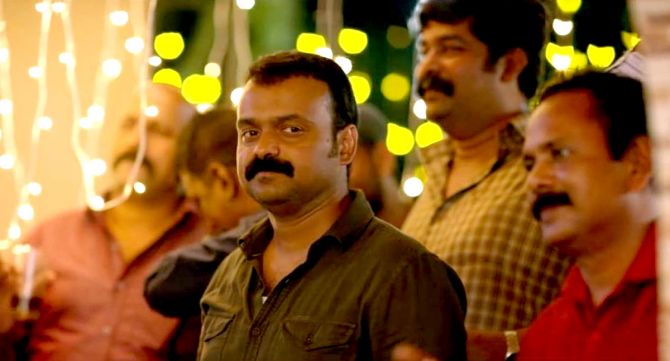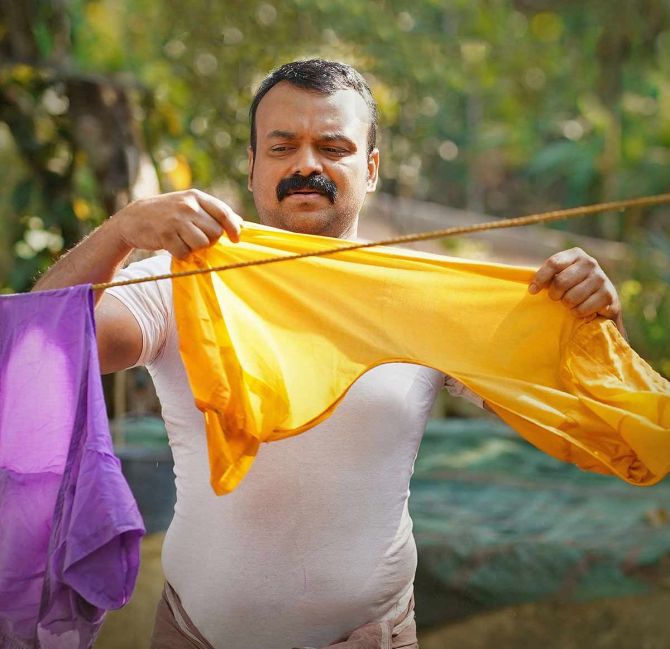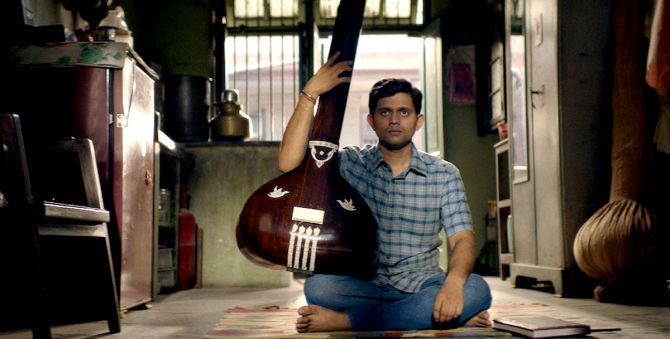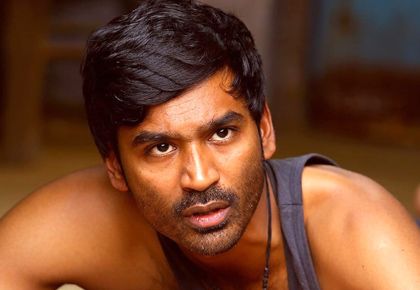'If questioning and dethroning hierarchies is your primary motive, why not put an end to the practice of announcing your shining star, your box office draw, in big flaming letters and mentioning everyone else's name in small font at the bottom of the screen?' asks Sreehari Nair.
The portfolio allocations made by Pinarayi Vijayan 2.0 and the news stories that these allocations generated seem to have most affected those who are easily affected by the plot movements in a motion picture.
After he dropped from his cabinet K K Shailaja (who, so far as we know, committed just one slip-up in her entire term, and that was appearing on the cover of Vogue India), Pinarayi was suddenly the emblem of all things wrong with our patriarchal political system.
Well past wokeism, we are firmly in an age of wokes mocking one another for being unreliable wokes, and news of Pinarayi's decision was greeted on Facebook and Twitter with a parade of memes, cat callings, and soggy status messages, describing him as everything from 'jealous' to good old 'hypocrite'.
With the appointment of Veena George as the new health minister, and that of Dalit leader K Radhakrishnan as the Devaswom minister, the scowling genius had struck back.
Sometime last month Pinarayi was the bad guy. Twenty four hours later, he was hot and progressive once again.
Most likely, he will stay this way.
At those who live for subsuming every news item reported in the media and checking how it tallies with their rigid ideas of good and evil, Comrade had thrown two curving sickles in two successive days. Broadcasting easy morals while simultaneously ducking complex realities is tough job, as the woke-hating wokes were to learn.

Ironically, this penchant for not looking beyond the obvious machinations of plot was being tested at a time when social media was busy arguing the many virtues of Mari Selvaraj's Karnan over Martin Prakkat's Nayattu.
If the storyline of a film, dictated by its sequence of events, were all one needed to categorise it, I too would have contended: Nayattu is an anti-Dalit film -- at the very least, it's an anti-appeasement politics film -- while Karnan is a pro-Dalit film. (It's using this logic that Lolita often gets categorised as a pedophile's handbook).
Before I go any further, however, let me warn you that nothing I say from here on would make any sense to you if you are one of those who thought the lazily conceived, poorly directed Django Unchained (in which Tarantino did not even bother to keep the continuity between shots going) an example of empowering cinema.
With a viewer like that, a conversation on aesthetics is pointless because 'aesthetics' to such a viewer would merely imply 'beautiful frames' that can hamper the development of one's social consciousness.
So assuming that you are not the I-need-art-to-make-me-feel-empowered sort, let us try getting to the bottom of this together.

As with every character in Nayattu, the Dalits in the movie too behave dishonorably at various points, but show me one character in Karnan who is as alive as Biju.
Seen from the peaty banks of plot, Biju (played by Dineesh P) is the antagonist of Prakattu's film. He is the troublemaker, the provocateur, the prince of conflict.
But take off those Aristotelian robes, will you, and wade deeper into his scenes.
Immerse yourself in his unchecked energy.
What do you see now?
Here's a weary, shifty man who has watchful eyes that don't lower easily, who shoots out onto the screen, who carves his own space, and who gives the picture a unique charge that could have come about only as a result of writing a character blessed with complete free will, and finding just the right actor for the role.
Scan Nayattu standing in these frosty waters with chattering teeth and you would concur that this is a film that respects the *human intensity* of each character who shows up, for however short a duration.
Unless you are an ideologue (and ideologues have hijacked the discourse against the film), you would be hard-pressed to see any villains here.
There are people who do terrible things, and you see these people in terms of what made them do those things, and all along you get an objective picture of their drive.
Not just Biju's sordid magnetism, but an old bent-at-the-hip Dalit gentleman who waits outside a police station with a petition even as the cops and the rowdies engage in a battle of egos, the visage of an up-and-coming Dalit politician who stealthily argues terms of compromise with the chief minister -- every stroke in Nayattu feels earned.
Hell, even Jaffer Idukki's chief minister, holding his mobile in that stiff manner (it's as if he is turning into his own effigy), conveys a history of compromises made and corpses walked over.
The narrative is thrown out of whack with the accidental death of a Dalit character, and I did not need a close-up of the dead man's face to figure out his identity.
I may have got just one clean look of this person prior to the mischance that kills him but since he was appearing in a film that sees no character as dispensable, even this walk-on part had been clarified for me.

Now compare such aesthetic choices with pro-Dalit Karnan where not just the abject villains, but every single character has been made into a lever for advancing Dhanush's heroisms -- and this in a film where the otherwise free-spirited, open-faced Dhanush plays the heard bugle through and through.
Comparing and contrasting it with the bullet-points of a town-hall charter, or the pages of an imaginary social register, Nayattu may seem anti-Dalit, sure, but even if you were to read it this way, the film's unconscious biases -- much like the misogyny in Strindberg's plays or the bloody-mindedness of Peckinpah's movies -- give it an emotional sophistication that no ordinary story of rebellion could have afforded.
In fact, without its problematic politics, Prakattu's effort would have probably wound up like Aashiq Abu's Virus: Taut, well-made, and too neat to provoke any reaction whatsoever, intense or tepid.
Sure, you can declare Shahi Kabir's script to be a well thought-out propaganda but when you choose to evaluate its merits against the script of Karnan, you are essentially putting Nayattu up against a competitor that doesn't dare to go that far, that keeps you camped on the warm banks of plot, that uses as its crutch a thousand familiar tales of oppression and retribution on which you must have historically wasted your sighs.
Cultural commentators who, seizing on this opportunity, have tried to classify Malayalam Cinema as Savarna-centric (such theories are the equivalent of dull arguments belched by a curious bystander), conveniently overlook the fact that mainstream Tamil Cinema is yet to develop beyond the trope of a solitary star bringing down a whole army of bad men.
Here's how mainstream Tamil Cinema has evolved over the years: The Hero, who for ages has been earning his medals through the forceful erasure of class differences, his gallantry set to an over-the-top soundtrack, is now proving his one-upmanship in the arena of caste.
How can one, with even the slightest semblance of taste, read such efforts at representation as anything more than examples of how a cinema culture milks what is in the air, what is fashionable?
If questioning and dethroning hierarchies is your primary motive, why not put an end to the practice of announcing your shining star, your box office draw, in big flaming letters and mentioning everyone else's name in small font at the bottom of the screen?
Certain rebellions, I guess, aren't that commercially viable after all.

Nayattu, on the other hand, does not come off a conveyor belt, predigested for the viewer.
Writer Shahi Kabir and Director Martin Prakattu (and nothing that either of them has done in the past prepared me for this one) have taken the risk of crafting a social drama while existing in mysteries and uncertainties themselves, and without always reaching after reason.
A great illustration of this is a sequence of the three police officers (played by Nimisha Sajayan, Kunchacko Boban, and Joju George) attending a dinner party where a folk-song gets thrown into the mix.
It's an audacious number -- titled The Eight-legged Octopus -- which veers into talking about the Ecstasy of Murder no less, and Prakattu, with a gambler's euphoria, cuts between the singers teetering on the edge of rapture, and the crowd searching for a few moments of casual insanity.
It's one of three great sequences I have watched this year (any criticism of it, or of Anwar Ali's masterly lyrics, should be worn as a badge of honour), a sequence that laterally talks about the human apathies that make exploitation possible, and no film that has tried to tackle caste in this country has come close to achieving the shudder of the poetry we are presented with in that four minute bit.
To critically judge a film that attempts to take up a virtuous position, you have to look beyond its plot, look to the film's inner digestive system, if you will, and, to the inner digestive system of the industry that has churned out the film.
And with regard to Tamil, we are talking of an industry that outwardly plays the Empowerment Game while essentially massaging some star's ego or trying to manufacture a new all-conquering star who will keep the conveyor belt running.
This entire cycle calls to mind the tragedy of Russia's political landscape, famous for replacing one form of despotism with another, and when patrons of an industry that permits such utopia try to fling labels at you, you cannot help but quip: 'Better an anti-Dalit film that has a mind of its own, than a pro-Dalit film that blindly follows templates.'

What you are seeking in any great work of art is a sense of balance and proportion -- and this is precisely what is lacking in the mainstream films coming out of my neighbouring state.
They are too full of rage, yes, but their makers, one gets the impression, haven't yet mastered the art of transmuting their rage into something playful, something beautiful, something sensual (Those who were taken with the heavy-handed symbolisms in Karnan would have no idea what I am talking about).
But balance and proportion is a rare quality, just as great artists are rare, and in cinema it's the lonely bastion of that rare film-maker who arrives at his shooting location willing to have his principles and his cynicisms punctured every single day.
In fact, from the current lot of Indian Directors, I can only think of two -- and both these names aim for something bigger than Pure Cinema -- who put their sense impressions above their acumen.
When you watch Dileesh Pothan's movies, you are watching the work of someone who doesn't hold himself hostage to fixed positions; and consequently, you, the viewer, share in his joy of discovery.
Allow me to illustrate.
It is when the patriarch in Joji (Panachel Kuttappan) comes home after the surgery, confined to a wheelchair, that you get a true measure of his strength. And in the way that scene has been mounted, you can feel Pothan's delight in discovering this facet of the old man.
Alternatively, take the dinner table scene in the film, where Kuttappan's children discuss the subject of property sharing, overseen by a well-meaning but bootless relative, Dr Felix. Pothan, you can tell, is realising his vision there: He has given his actors a generous briefing, and then pushed them into building that scene up to its eventual glory.
By the time the discussion is complete, everyone around that dinner table appears heroic in their own terms.
No chairs are vacated, hardly hundred words are spoken, but every ego is accounted for.

Now consider a scene from Chaitanya Tamhane's The Disciple, one which has the film's protagonist, Sharad Nerulkar, coming to loggerheads with a whiskey-sipping, peanut-munching connoisseur of classical music.
That entire stretch is soaked in Tamhane's personal obsessions: He is neither a simple craftsman nor a simple-minded social crusader there; there is an openness about the way he looks at faces, about the way he uses the environment -- and that is what you respond to.
In the two scenes I have mentioned above, as also in Nayattu's song sequence, there's no intellectualism, the human lens replaces all social and political lenses, and what you get to preview are not 'learned things' but 'found things'.
These film-makers may have dipped into manifestos, but their art comes from their conviction that people are more surprising than we think.
This is why those three scenes breathe as freely as they do, unlike the clogged sections of The Great Indian Kitchen which, thanks to Jeo Baby's predilection for making points, end up melodramatising one particular set of characters and turning them into monsters.

I know many who believe that the *standard humanist films* being made today -- which show the mousy underprivileged prevailing over a vile, unjust system -- reflect the politically charged atmosphere of our times, that these films reflect the intensely polarized times we are living in.
But adults who talk in such frozen language, who want cinema to wield legislative powers in 2021, if one were to genealogically study these individuals, they would reveal themselves to be that same group of happy-nappies who, 15 years back, sat secure in their belief that Lage Raho Munnabhai had helped make us less violent as a nation.
What has not changed is this naiveté’s source: Journalistic endeavours, constructed under tight deadlines, built to give quick moral judgments to a bunch of people who are prejudiced to begin with.
This is equally true of the kind of stuff that the media on the Left publishes, and what the Right-Wing media puts out. It is as true of think-pieces that vacuously diss a political party, as it is of heartfelt trifles such as the one about 'a businessman from Nagpur who is striving to make the world a better place'.
Does my scepticism sound like a veiled call for apolitical art? If so, I plead innocence.
That said, our political films desperately need to be more than just straight reactions to the anger we feel when we read a sensational news story, and they should aim to do better than unimaginatively press into service the deep-seated clichés that make up our favourite film genres.
The new cinephile sees the world only in terms of movies; the new philistine sees movies only in terms of ideology.
And in crude movies such as Karnan, as well as in the crude aspects of half-interesting movies such as The Great Indian Kitchen, both the new cinephile and the new philistine get their due.
The combination of knee-jerk sentimentalism and imaginative lack is why we are unable to see the PR activities performed by our politicians for what they are: not as something definitively good or bad, but as essential ingredients of that pleasurable comedy called 'politics'.
And when we misread these acts, when we over-scale or undersize them, we are laying the foundation for those countless poorly done biographies that threaten to invade us in the future.
It is in this very spirit that a new cinephile and a new philistine will every now and again come together to make a Masala Film, 'but this time with women' and pronounce it 'a triumph for cinema, and a triumph for society'.
This is why we are being led to believe that a film, which shows a Dalit man singlehandedly beating up a gang of policemen, while sheep-like villagers applaud him with teary eyes, is some kind of revisionist Western.
When you stare at the screen with a newspaper story in your one hand, and the salient features of an established genre in another, what passes by you unobserved is Life, with all its startling rhythms.
Observe how in Joji, Dr Felix grows smaller and smaller at the dinner table, while Joji grows larger and larger.
Observe the way Bincy looks at Joji, approving silently his genius and his rascality.
Observe how in The Disciple, the connoisseur stops muttering inside stories when he realises that Nerulkar's Gods are being desecrated, and how Nerulkar asks him to 'please continue'.
Observe how Nerulkar's friend tries to savor his drink, while simultaneously trying to placate his inflamed buddy.
These are touches to behold, to treasure because they communicate original visions of the world.
And to critics, they don't offer the comfort of plainly bellowing: 'Here's a subversion of such-and-such genre.'
In these films, these moments, we move beyond academic discourse, we move beyond rage.
We arrive in the season of molting, of casting away dead skin; we arrive at the futility of labels, at the profaning of everything we hold sacred.











